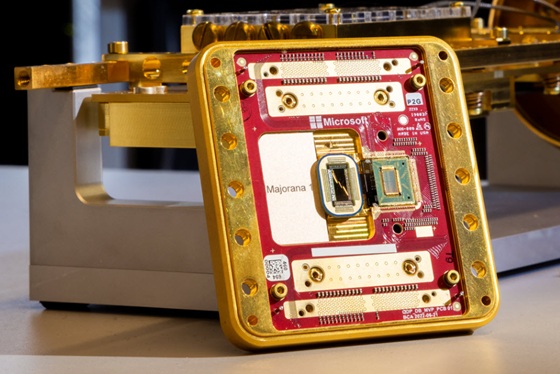Microsoft has introduced Majorana 1, a quantum chip based on its new Topological Core architecture, which the company says could accelerate the development of practical quantum computing. The chip utilizes a topoconductor, a novel material that enables the creation of more stable and scalable qubits, the fundamental units of quantum computation. Microsoft claims this breakthrough could bring quantum computers capable of solving industrial-scale problems within years rather than decades.
The company likens this advancement to the impact of semiconductors on modern computing, suggesting that topoconductors could enable systems with a million qubits. Microsoft technical fellow Chetan Nayak described the development as an effort to create the quantum equivalent of the transistor, emphasizing the importance of material quality in achieving scalability.
According to Microsoft, Majorana 1 provides a clear path to integrating a million qubits on a single chip small enough to fit in the palm of a hand. The company sees potential applications in chemistry, materials science, and environmental solutions, such as breaking down microplastics or developing self-healing materials. Nayak stated that achieving large-scale quantum computing requires a clear trajectory toward a million qubits, a milestone Microsoft believes it has mapped out.
Microsoft’s approach is based on topological superconductors, which create a unique state of matter distinct from solids, liquids, or gases. This state allows for the formation of stable qubits that can be digitally controlled, addressing some of the limitations of existing quantum computing technologies. A research paper published in Nature confirmed that Microsoft researchers successfully created and measured the properties of these topological qubits, marking a step toward practical computation.
Developing Majorana 1 required an entirely new materials stack, composed of indium arsenide and aluminum, designed at the atomic level. Microsoft’s goal was to generate Majorana particles, which offer inherent error resistance and enhance qubit stability. The company stated that its Topological Core provides reliability at the hardware level, minimizing the need for extensive error correction.
Quantum computing at commercial scale requires trillions of operations on a million qubits, a challenge exacerbated by the complexity of current control mechanisms. Microsoft says its digital measurement approach simplifies control, potentially improving efficiency and scalability. The company has placed eight topological qubits on a chip designed for expansion.
Microsoft’s focus on scalable quantum computing led to its selection for the final phase of DARPA’s Underexplored Systems for Utility-Scale Quantum Computing (US2QC) program, which aims to determine whether quantum technologies can be commercialized more quickly than previously expected.
The company envisions that million-qubit quantum computers will be capable of solving problems beyond the reach of classical computing, such as designing self-healing materials, optimizing catalysts for environmental applications, and improving enzyme behavior in healthcare.

